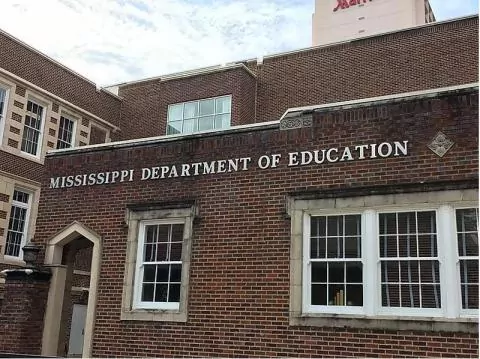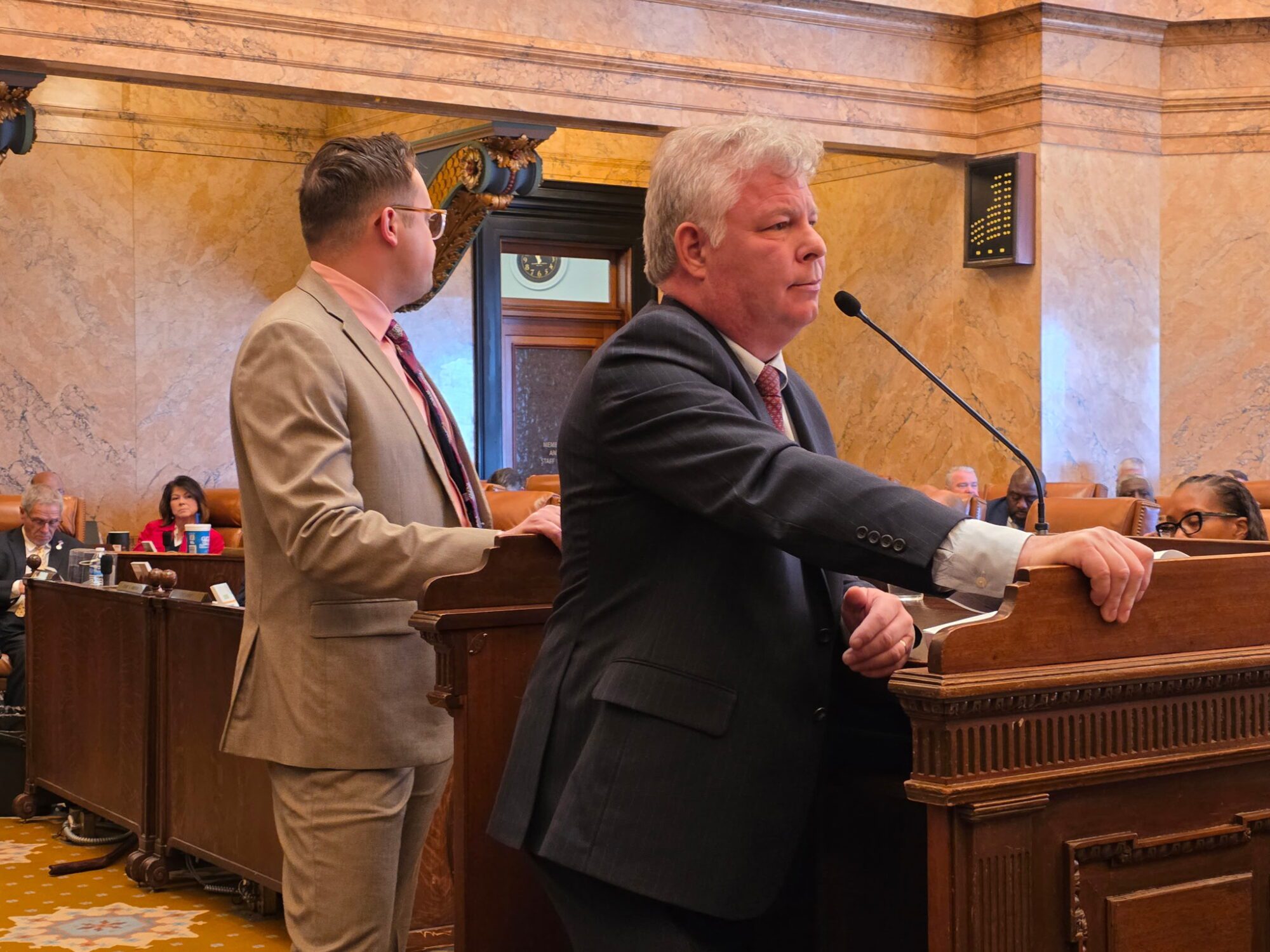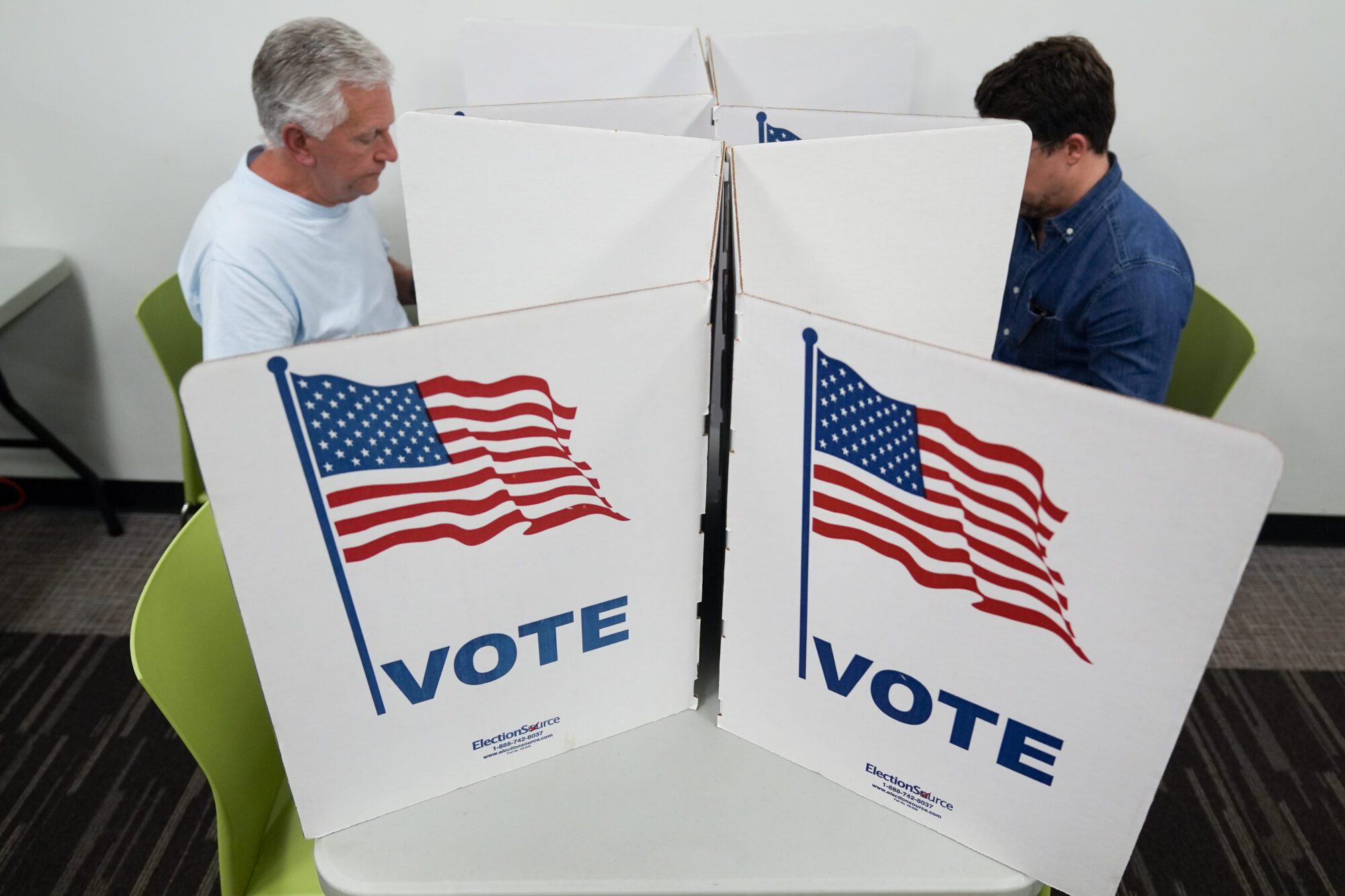
Education, healthcare, tax cuts, PERS, and the ballot initiative process all loom large over the 2024 session.
Put away the Christmas tree. Shoot off some fireworks to bring in the New Year. Then, prepare yourself. The 2024 legislative session begins on Tuesday with plenty of hot button issues on the horizon.
The Mississippi Legislature normally meets for three months every year. However, the session after an election lasts 125 days. This gives new members of the Legislature time to get acclimated. It also gives leadership of both chambers time to make decisions about committee chairmanships. The extra time could be especially important for incoming House Speaker Jason White as he builds a new leadership team.
Every legislative session takes on a life of its own. If an issue stirs controversy, it can suck the air out of the room for other potential policy reforms. Horse trading, meanwhile, can give life to policy changes that no one anticipated. Here’s a look at the agenda items that could rule the 2024 session.
Education

Education policy normally sits near the top of the legislative heap, and for good reason. In the last two years, the Legislature made significant investments in Mississippi’s public education system. Those included a $250 million teacher pay raise and an additional $100 million investment in Mississippi’s school funding formula, MAEP. Proposals in 2024 could touch on:
- School Funding Formula: In 2018, the Legislature considered and declined a rewrite of Mississippi’s school funding formula, MAEP. Near the end of the session last year, the Mississippi Senate unsuccessfully pushed revisions that would have changed limits on funding from local property taxes. Both Lt. Governor Delbert Hosemann and incoming Speaker Jason White have signaled interest in funding formula revisions.
- Accountability Model: Incoming Speaker Jason White told Magnolia Tribune last month that reforms to the accountability model could be on the table in 2024. Concerns have been expressed in recent years that the current model ties the hands of districts to innovate and is too test-centric.
- Open Enrollment: Mississippi currently has an open enrollment system that allows a student to transfer from one public school to another public school, but only if both the student’s current and prospective school agree to the transfer. Efforts could be made this session to make public-to-public transfers easier by dropping the sending school’s power to veto a transfer and making the transfer contingent only on the receiving school’s approval.
- Education Scholarship Accounts: States across the U.S. have been actively working to expand programs that give parents the option to send their children to private schools using state dollars. Mississippi currently offers that option to families with special needs students. Gov. Tate Reeves has in the past been a proponent of expanded school choice options for families. Incoming Speaker Jason White has explicitly mentioned expanding availability of ESAs to more families in Mississippi in recent months.
- College Financial Aid: Last year, the Legislature considered a package of reforms to Mississippi’s financial aid program that could increase eligibility for low income students to receive aid. Expect there to be another push to change the three grant programs currently administered by the state, and expect “free” community college to be a part of that discussion.
There’s very little chance all of this gets done in one year. Some priorities will fall by the wayside or be pushed to subsequent years.
Healthcare
- Medicaid Expansion: Medicaid expansion dominated the 2023 election cycle. In recent years, Gov. Tate Reeves and outgoing Speaker Philip Gunn stood against expanding eligibility for Medicaid. Gunn’s replacement, White, has indicated he is open to discussions on expansion, with focus being placed on eligibility for working citizens. While it is unlikely the state will commit to Medicaid expansion in 2024, discussions surrounding it could impact other legislative priorities, particularly if they result in public battle lines drawn between the Governor and Legislature.
- Hospital Funding: In 2023, the Legislature set aside $103 million in American Rescue Plan Act funds to help aid struggling hospitals. The program ran into problems due to federal restrictions on the funds. The Legislature may attempt to remedy the bottleneck and get funds flowing to hospitals, though the approval of Gov. Reeves’ CMS proposal to increase Medicaid reimbursement rates could make a fix unnecessary.
- Supply Side Reforms: Much focus has been placed on how to pay for healthcare, but a key part of the “access to healthcare” equation is having a sufficient number of medical providers to service Mississippi’s population. Two reforms aimed at increasing provider supply could come into focus in the 2024 session — legislation to recognize the full practice authority of nurse practitioners to see patients without a physician supervisory agreement in place, and legislation to reform Mississippi’s Certificate of Need system. CON laws require providers to get state approval before opening and critics have long claimed they serve an anti-competition function.
- Medical Marijuana: Recent news about gas station CBD products with THC levels and pesticides that far exceed state regulations are likely to prompt additional belt tightening around marijuana.
Taxes & Spending

In 2022, the Mississippi Legislature passed major tax reform that when fully phased in will result in Mississippi having a flat tax on income of just 4 percent. The compromise occurred after Gov. Reeves and outgoing House Speaker Philip Gunn had pushed for plans to completely eliminate the income tax.
The Governor, Lt. Governor, and incoming House Speaker have all indicated willingness to explore additional tax relief for Mississippians. The Governor’s campaign for re-election continued to emphasize complete income tax elimination as a priority. Gov. Reeves’ 2023 opponent, Brandon Presley, had advocated as an alternative to income tax elimination, doing away with sales tax on groceries. Lt. Gov. Hosemann has indicated some interest in that proposal.
Plans to reduce taxes further have to be weighed against the fact that the Legislature has, in recent years, voted to increase state spending with some fairly large recurring expenditures. An extra hundred million, here and there, adds up quickly and could hamper additional tax cuts. So too could soberminded consideration of the next topic.
PERS
The Mississippi Public Employees Retirement System (PERS) is in bad shape. It has been in bad shape for a while. Back when Haley Barbour was governor, he commissioned a study of how to shore up the system. The recommendations of that commission were largely ignored and the problem has gotten significantly worse.
As of June 30, 2023, PERS employers’ total pension liability was $56.8 billion. The plan’s funding was $31.6 billion, resulting in a net pension liability of $25.2 billion. It is now funded at 55.7 percent. Anything under 60 percent is considered unsafe. In 2023, the system paid out $3.3 billion in benefits, but only took in $1.965 billion in employer and employee contributions.
The Legislature avoided a potential increase to the employer contribution rate last year. State and local governments are already contributing 17.4 percent of public employees income to the retirement system and some have warned that increasing the rate further would dramatically impede local governments and force property tax hikes.
Reforming PERS is considered, in some circles, as a third political rail. But at some point, the can will have been kicked as far as it can go. The truth is that an unwillingness to talk about it puts retirees on less stable footing. Could this be the year the state stops kicking?
Ballot Initiative
The Mississippi Constitution contains an express right of the people to amend by ballot initiative. In the wake of the medical marijuana ballot initiative, the Mississippi Supreme Court decided that the process spelled out in the Constitution was unworkable, as it relied on gathering signatures from the old five congressional districts and not our current four congressional districts. The Court, however, did not overturn the right itself.
The Legislature has been unable since the decision to agree on a new process to replace the invalidated process. Expect there to be additional effort this year to find that sweet spot and restore some form of ballot initiative to the people.











